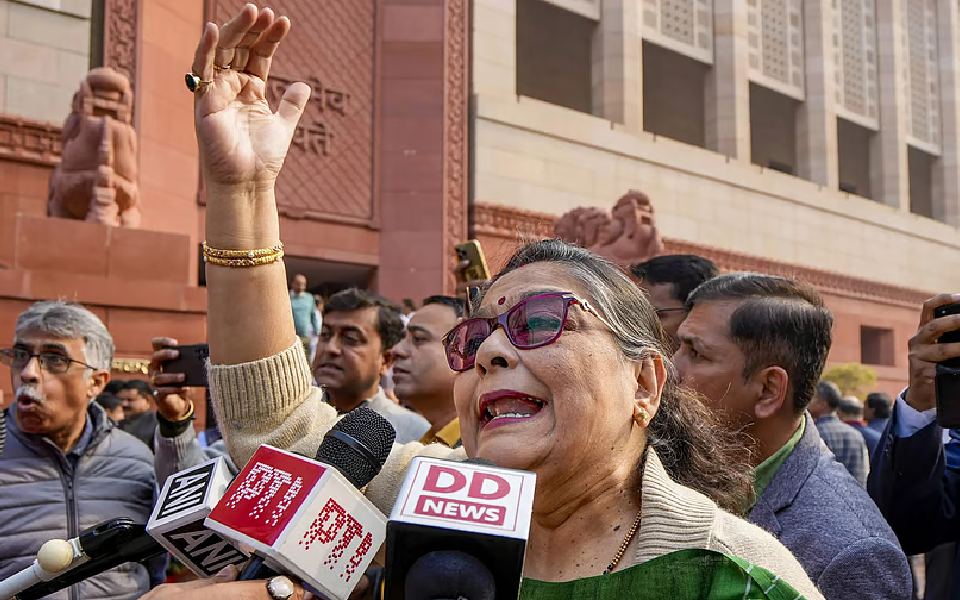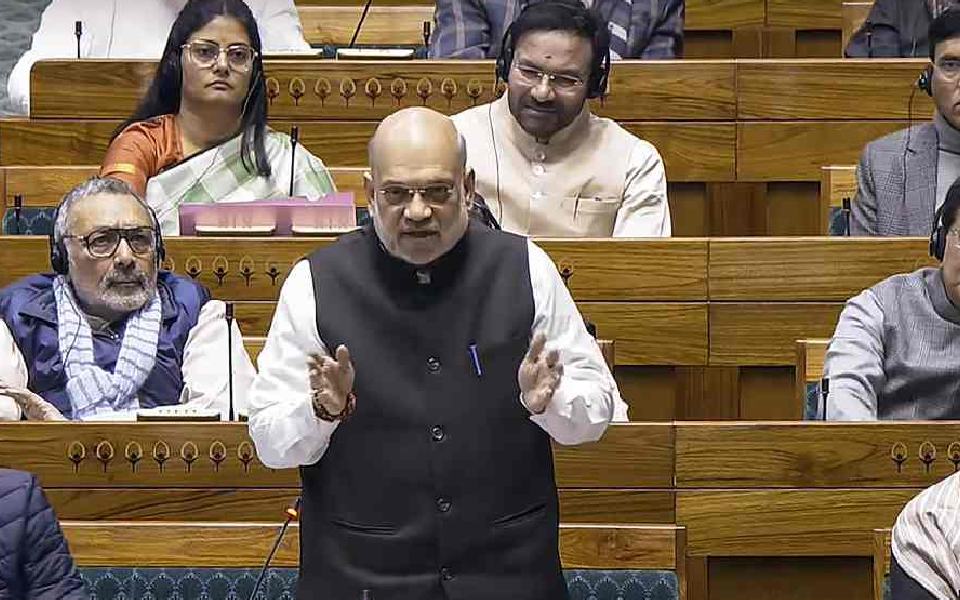New Delhi: A video showing a minor boy placing stones on railway tracks has resurfaced on social media, accompanied by misleading claims suggesting a deliberate act of sabotage linked to communal tensions. The video, widely circulated on platforms like X, implies that children are being used to cause train derailments, with some posts falsely attributing the incident to a specific community.
Social media users shared the video, claiming that the event is part of a larger conspiracy to sabotage railway tracks. These posts have gained significant traction, with many speculating about the involvement of certain communities in the incident.
However, a fact-check report by Alt News reveals that the video is not recent and lacks any communal angle. The video was traced back to May 12, 2018, when it was first posted on Facebook. It was recorded in Kalaburagi, Karnataka, and depicts children from nearby slums playing by placing stones on the railway tracks.
Ravi Kumar, the circle inspector of Raichur Railways, confirmed that the video is from 2018 and clarified that the children had no intention of causing harm. The trackmen present at the scene, identified as Gopal and Rajkumar, scolded the boys and let them go without filing a case. Both trackmen also confirmed that the boys involved were Hindus, debunking the communal claims.
In conclusion, the viral video is from 2018, and the claims of a deliberate act of sabotage with a communal angle are false. The incident involved children playing near the tracks without any malicious intent.
Right Wing Pro-Govt Propaganda accounts are sharing old videos to give communal angles to the train accidents or it is a deliberate act of 'sabotage'
— Mohammed Zubair (@zoo_bear) September 8, 2024
This is a 6-yr-old video of boy placing stones on rail tracks in Kalburgi. This video was earlier shared with a claim that the… https://t.co/EaDBHZlskH
Let the Truth be known. If you read VB and like VB, please be a VB Supporter and Help us deliver the Truth to one and all.
London, Aug 5 (PTI): An Indian-origin taxi driver based in Ireland for over 23 years has become the latest to be targeted in an unprovoked attack in the capital Dublin, with local police (Gardai) launching an investigation into the violent assault.
Lakhvir Singh, in his 40s, told local media that he picked up two young men in their 20s on Friday night and dropped them at Poppintree, in the Ballymun suburb of Dublin.
Upon arriving at the destination, the men are said to have opened the vehicle door and struck him twice on the head with a bottle. As the suspects fled, they reportedly shouted: "Go back to your own country".
"In 10 years I've never seen anything like this happen," Singh told ‘Dublin Live’.
"I'm really scared now and I'm off the road at the moment. It will be very hard to go back. My children are really scared," he said.
A Dublin police spokesperson said Singh was taken to the city's Beaumont Hospital with injuries determined as not life-threatening.
"Gardaí are investigating an assault reported to have occurred in Poppintree, Ballymun, Dublin 11 at approximately 11:45 pm on Friday, 1st August 2025. A man, aged in his 40s, was brought to Beaumont Hospital for treatment of non-life-threatening injury. Investigations are ongoing," the spokesperson said.
The incident followed an Indian Embassy advisory, also issued on Friday, expressing safety concerns following recent attacks in and around the capital Dublin and urging Indian citizens to take safety precautions.
"There has been an increase in the instances of physical attacks reported against Indian citizens in Ireland recently,” states the advisory.
“The embassy is in touch with the authorities concerned in Ireland in this regard. At the same time, all Indian citizens in Ireland are advised to take reasonable precautions for their personal security and avoid deserted areas, especially at odd hours," the statement reads, adding emergency embassy contact details as 0899423734 and cons.dublin@mea.gov.in.
It came in the wake of a brutal attack on a 40-year-old Indian man at Parkhill Road in the Tallaght suburb of Dublin on July 19, described as “mindless, racist violence” by locals.
The Gardai had opened an investigation into the case and Indian Ambassador to Ireland Akhilesh Mishra was among those who took to social media to express shock over the attack.
“Regarding the recent incident of physical attack on an Indian national that happened in Tallaght, Dublin, the embassy is in touch with the victim and his family. All the requisite assistance is being offered. The embassy is also in touch with the relevant Irish authorities in this regard,” the embassy said in a social media post days after the incident.
A Stand Against Racism protest was also held by the local community in condemnation of what was described as a "vicious racist attack" and to express solidarity with migrants.
Last week, Dr Santosh Yadav took to LinkedIn to post details of a “brutal, unprovoked racist attack”.
The entrepreneur and AI expert stressed that it was not an isolated incident and called for “concrete measures” from the governments of Ireland and India to ensure Indians feel safe to walk the streets of Dublin.
His post revealed that a group of six teenagers attacked him from behind as he walked to his apartment in Dublin.
“This is not an isolated incident. Racist attacks on Indian men and other minorities are surging across Dublin — on buses, in housing estates, and on public streets. Yet, the government is silent. There is no action being taken against these perpetrators. They run free and are emboldened to attack again,” reads Yadav's post.
Fine Gael party Councillor for Tallaght South, Baby Pereppadan, was among those who expressed concern following last month’s attack.
“People need to understand that many Indian people moving to Ireland are here on work permits, to study and work in the healthcare sector or in IT and so on, providing critical skills,” he said.
Another violent anti-Indian attack in Ireland
— Journalist V (@OnTheNewsBeat) August 5, 2025
Taxi driver Lakhvir Singh was attacked with glass bottles while doing his job pic.twitter.com/mtkwhLWISx





